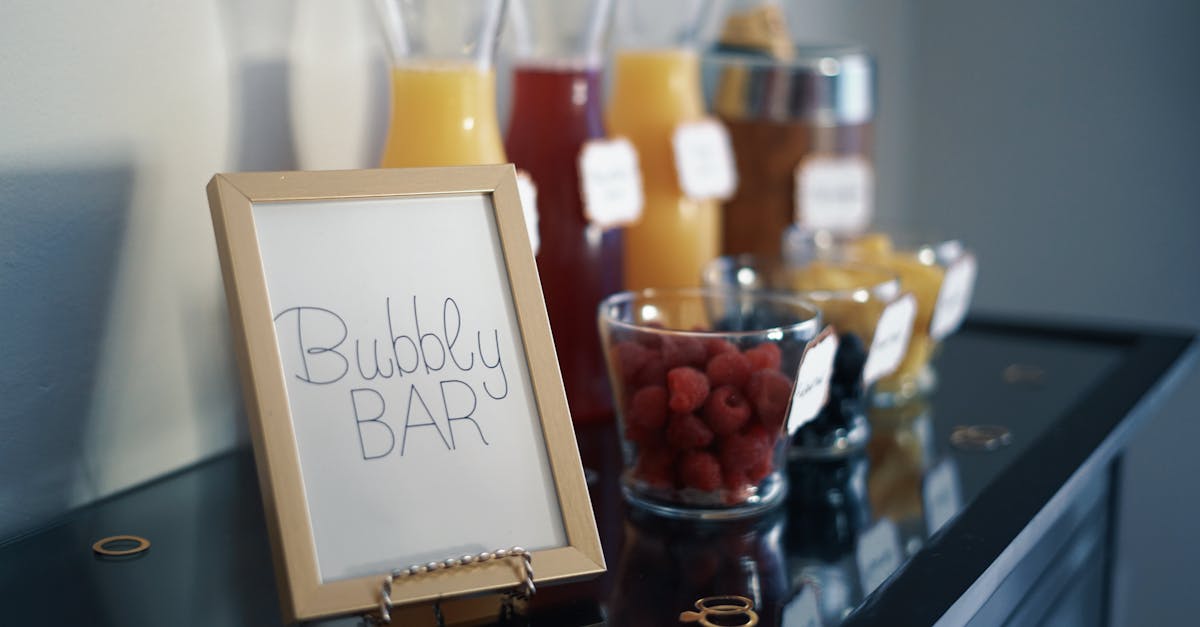
Introduction to Epicurean Evolution 2025
The future of food and drink in 2025 promises an exciting landscape characterized by innovation, sustainability, and sensory delights. As technology advances, consumer preferences shift toward more personalized experiences, blending tradition with the new. From plant-based diets gaining traction to drinking experiences reshaping social and cultural interactions, the culinary world stands on the cusp of a revolution. Additionally, economic factors such as climate change and resource scarcity are pushing industry players to rethink their approaches. Food and drink are not merely sustenance but an intertwined part of our identities, influencing our environment and health. Understanding these evolving trends offers insights into the future dining experiences and the planet's well-being.
Plant-Based Movement Resurgence
The shift toward plant-based diets has been gaining momentum, with 2025 marking a significant turning point. With increasing awareness of the environmental impact of meat consumption, consumers are choosing alternatives like plant-based meat and dairy products. Advances in food technology have resulted in products that replicate the taste and texture of animal-based foods, broadening their appeal. Companies like Beyond Meat and Impossible Foods lead the charge, creating delicious and nutritious options that cater to a broad demographic. This trend is not just about dietary choices but reflects broader values related to sustainability, ethical consumption, and health. Nutrition-focused marketing and culinary innovation are set to make plant-based foods a staple by 2025.
Sustainability and Local Sourcing
Sustainability remains at the forefront, with consumers favoring locally-sourced and sustainable products that reduce their carbon footprint. Agricultural innovation, such as vertical farming and aquaponics, offers a solution to resource scarcity, enabling local production even in urban settings. By 2025, community-supported agriculture and farm-to-table concepts are expected to thrive, fostering direct relationships between consumers and producers. Eco-labeling and transparent supply chains will ensure ethical standards and bolster trust in food origins. Moreover, governments worldwide push sustainability initiatives, providing subsidies and support for eco-friendly practices. The future of dining requires a commitment to balance taste, nutritional value, and environmental responsibility.
The Rise of Functional Foods
In a health-conscious era, the demand for functional foods, which offer additional health benefits, will continue to rise. Ingredients like probiotics, omega-3 fatty acids, and antioxidants will be incorporated into foods to cater to wellness-focused consumers. By 2025, fortified snacks, beverages, and meal replacements will proliferate, catering to busy lifestyles. Personalized nutrition, powered by genetic and microbiome analyses, will ensure that diets are tailored to individual needs, optimizing dietary outcomes. The integration of technology in nutrition not only promotes health but also enables preventive healthcare, reducing the global burden of lifestyle-related diseases.
Culinary Tech Innovations
The culinary world is experiencing rapid technological evolution, impacting how food and drink are produced, prepared, and consumed. Robotics and AI are streamlining restaurant operations, from order management to precision cooking. By 2025, smart kitchens will dominate, utilizing IoT devices for temperature control and automated processes. 3D food printing and lab-grown meat present revolutionary ways of creating meals, merging creativity with sustainability. At-home cooking technologies like smart ovens and voice-activated devices enhance the culinary experience, making gourmet dining accessible to all. Tech-driven approaches are not just about efficiency, but they also push creative boundaries, transforming culinary artistry.
Reimagining the Drinking Experience
Beverage trends in 2025 showcase a confluence of health, sophistication, and experience. Alcohol-free drinks are surging, meeting the demand for wellness while retaining the celebratory essence of traditional spirits. Botanical infusions, CBD beverages, and adaptogenic mixes offer a healthful twist without compromising flavor. Craft experiences are no longer limited to alcoholic beverages; craft coffee and artisanal teas are becoming cultural phenomena, celebrated in specialized bars and cafes. Technology also plays a role here, with smart cups providing flavor profiles or measuring liquid intake. The future drinking landscape is defined by inclusive, health-aware, and indulgent options.
Experiential Dining and Storytelling
Epicurean experiences in 2025 emphasize emotion and storytelling, transforming the act of dining into a journey. Restaurants offer multisensory immersion, blending soundscapes, aroma, and visuals to enhance flavors. Interactive food journeys tell stories, connecting diners to the source and significance of each dish. Chefs, viewed as curators, assemble experiences that transcend mere consumption, emphasizing cultural narratives or historic engagements. Pop-up dining events, virtual dining tours, and themed culinary nights allow diners to traverse time and space, fostering a deeper understanding and appreciation of food and its origins.
Global Fusion and Culinary Diversity
The era of globalization heralds a celebration of diverse culinary traditions, blending flavors and techniques across cultures. By 2025, we expect to see gourmet street food gaining prestige, with chefs elevating humble street offerings into haute cuisine. Fusion foods that marry distinct culinary ethics, such as Korean-Mexican or Italian-Japanese, will become mainstream, offering adventurous palates exciting new taste experiences. Regional cuisines will share the limelight, breaking into global markets as travel and technology disseminate knowledge. This fusion not only enriches palates but also promotes cultural understanding and appreciation, redefining global dining perspectives.
The Future of Food Delivery Services
Convenience continues to drive the food industry, with delivery systems evolving to meet modern demands. By 2025, drone and robotic deliveries will become commonplace, ensuring speed and efficiency. Meal kits, offering fresh ingredients and step-by-step guides, allow consumers to enjoy homemade meals without the hassle. Subscription models for gourmet coffees, craft beers, or specialty snacks provide regular indulgence without leaving home. Virtual dining experiences, where diners can share a meal remotely, create new social dining paradigms. Convenience intersects with technology and sustainability, defining the future of accessible and eco-friendly dining provisions.
Conclusion and Future Outlook
The journey to 2025 presents an exhilarating vision of future dining that marries sustainability with innovation. As plant-based diets, functional foods, and tech-driven culinary solutions take center stage, the epicurean landscape is set to evolve uniquely. From automation to experiential dining, the trends reflect our quest for convenience, health, and cultural richness. However, these exciting prospects require balancing emerging technologies with ethical standards and environmental considerations. As the world prepares for these shifts, it reveals an unfolding narrative about holistic well-being and celebrating culinary diversity, ensuring a bright, delicious future for food enthusiasts worldwide.